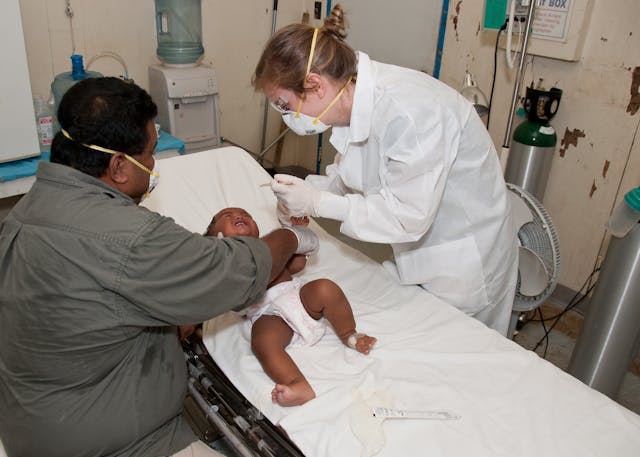Understanding the full scope of clinical trials is imperative for individuals considering participation. Weighing the advantages and disadvantages of clinical trials might help prospective volunteers make an informed decision. This balance of pros and cons dovetails with the noble pursuit of advancing medical science for the greater good.
Decoding Clinical Trials: A Quick Overview
Imagine being part of the cutting-edge! Clinical trials are closely watched studies that test how safe and effective new treatments are. These interventions include novel medications, vaccines, diagnostic techniques, and lifestyle modifications. The main objective of clinical research is to collect dependable data that can improve patient outcomes and add to the body of knowledge in medicine.
Clinical studies are essential tools in developing new medical treatments and interventions. They are conducted under strict regulatory supervision and involve a rigorous testing and evaluation process. Clinical trials typically involve multiple phases to answer specific research questions and evaluate the intervention’s safety and effectiveness.
A limited number of healthy volunteers are often administered the intervention in the initial phase of a study to assess its safety. The benefits and risks of clinical trials may aid potential participants in making a well-informed choice. Larger patient groups are included in later phases to assess how well the intervention performs to treat the desired ailment or condition. A large-scale study involving thousands of patients often constitutes the last phase of a clinical trial, confirming the safety and efficacy of the intervention.
These data are carefully analyzed to inform medical practice and policy. This knowledge is crucial when deciding whether a novel intervention is secure and productive enough to receive regulatory agency approval, like the FDA’s. Clinical studies also contribute to developing new medical knowledge, which can lead to improved patient outcomes and better healthcare practices.
The Potential Upsides of Clinical Trial Participation
Participating in clinical research can have many advantages for individuals who suffer from diseases with limited treatment options. One of the most significant benefits is access to innovative therapies that have not been available to the public. Patients can access state-of-the-art medicines that may enhance their quality of life and overall health by participating in clinical trials.
Moreover, they are a crucial component of medical research, and participants play a vital role in advancing the field of medicine. Participants give researchers vital data that they may use to assess the efficacy and safety of novel therapies and medical procedures. Clinical data may also uncover new treatments’ possible hazards or side effects, improving healthcare procedures.
In addition to the generous appeal of participating in a clinical trial, individuals also benefit from closely monitored care. Patients receive regular check-ups and close attention from healthcare professionals throughout the trial, which can be reassuring for those with severe or chronic health conditions. Moreover, participants may receive financial compensation for their time and travel, which can help offset the costs of participating in a clinical trial.
Taking part in clinical trials may be an excellent experience for people who want to help advance medical research, access highly monitored care, and possibly receive life-changing treatments.
The Flip Side: Understanding the Risks
With the potential comes the peril; clinical trials are, by nature, experimental. Unanticipated side effects or adverse reactions are possible, as the complete profile of the investigational treatments needs to be well-established. There is also no guaranteed personal benefit, as the intervention may prove no more effective than current treatments. Before participation, the emotional and physical toll should also be part of any risk assessment.
Informed Consent: Your Right to Knowledge
Central to the ethical conduct of clinical trials is informed consent, a process in which participants are thoroughly briefed on the research they are considering. It entails understanding the purpose, procedures, potential benefits, and risks associated with the study. Informed consent is not a one-time event but a continuous dialogue to keep participants aware throughout the research.
Participant Protection: Ethics and Oversight
Putting participants first! Institutional review boards (IRBs) thoroughly review US clinical trials to ensure ethical treatment and protect participant rights. This oversight includes a rigorous review of the scientific validity of the study protocol and its moral justification, ongoing monitoring for participant safety, and the investigation of any adverse events that may occur.
Personal Considerations: Is a Clinical Trial Right for You?
Choosing to enroll in a clinical trial intersects with personal health conditions, life circumstances, and future aspirations. A critical dialogue with healthcare professionals can provide a clearer view of how clinical research fits into one’s unique health narrative. Factors such as the potential impact on quality of life, alignment with personal treatment goals, and the assurance of understanding every aspect of the trial, including the patient’s rights and responsibilities, must be considered.
Making the Decision: Steps to Take
Creating a checklist of steps before a clinical trial can be instrumental. Researching the specific trial details, evaluating its alignment with one’s treatment goals, and ensuring a clear grasp of the practicalities of participation are all essential. Consulting with a trusted healthcare provider, reviewing study materials, and seeking a second opinion should also be on this checklist.
Final Thoughts: The Broader Impact of Clinical Trials
Participating in clinical research can feel formidable, but remembering that each volunteer is a crucial contributor to broader medical progress is worth remembering. Individual participation might be the lynchpin in discovering a cure or improving existing treatments. This kaleidoscope of personal and communal impacts underscores clinical trials’ profound weight on healthcare advancement and societal well-being.






